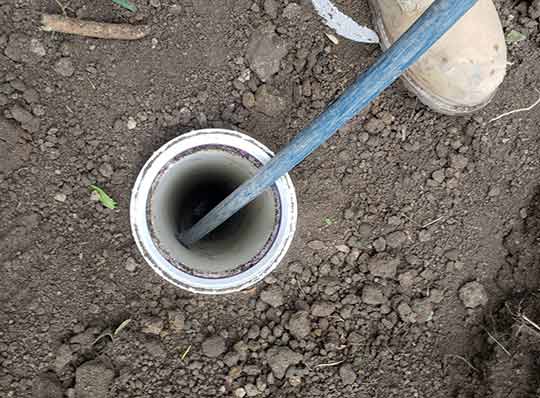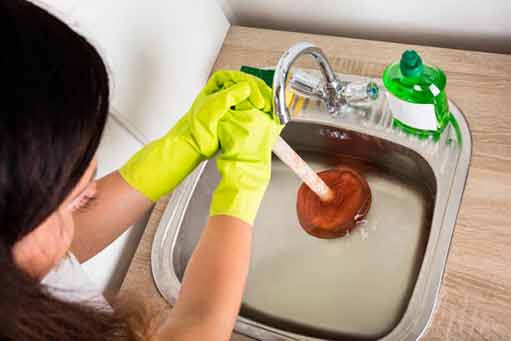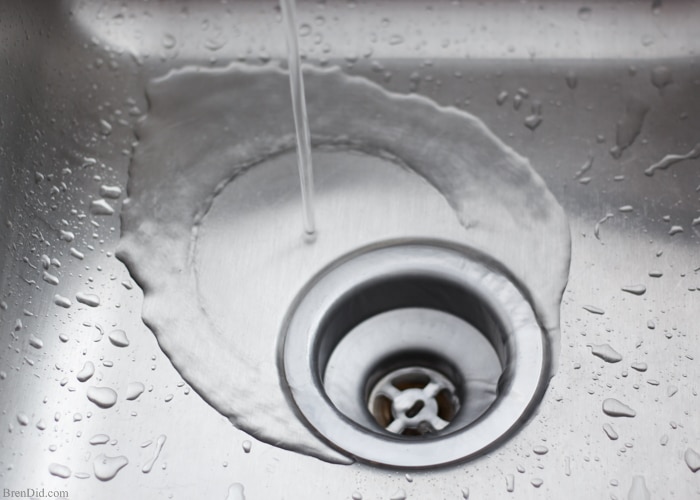Clogs are the most common and most persistent problems in drain systems. A drain is clogged when wastewater cannot flow freely through the pipes. This problem happens in residential and commercial drain systems, regardless of their age or the type of materials they are made of.
Drain clogs happen for two major reasons:
- They are also the inescapable consequence of how drains are designed to work. That is because of the solid and semi-solid materials contained in wastewater. These materials accumulate inside drainpipes and cause them to clog.
- Drain clogs also happen because of how a drainage system is used. If the plumbing is misused by those who live in a home or by the occupants of a commercial building, the drainage system will be more likely to experience clogs.
As with buildings everywhere, drain clogs are common in Chicago homes and businesses. Every year, millions of dollars are spent by homeowners and businesses to fix drainpipes that have been damaged by clogs. The sad thing is these problems and costs are entirely preventable.
Hydro-jetting, the definitive solution for clogged drains in Chicago
Drains that clog often wear out faster because of the constant stress of buildup on the pipes. Any solution that relieves this stress by quickly and efficiently removing the offending materials from the pipes will not only cut your maintenance costs but also prolong the life of your drainage.
Olympic Management says that solution is hydro-jetting
What is hydro-jetting? How does it work, and why is it the best solution for cleaning clogged drains?
Hydro-jetting is a drain-cleaning technique that uses high-pressure water to clear clogs from drainpipes while also cleaning the pipes. The method is effective for dealing with stubborn clogs or buildup and will even remove tree roots that have found their way into the pipes.
To hydro-jet a drain system, a machine (a “jetter”) sprays water at extremely high pressures into the pipes. This pressure can range from 3,000 to 8,000 pounds per square inch (psi). The correct pressure depends on the severity of the clogs and how long they have been there.
Unlike other drain-cleaning methods, hydro-jetting can be used to prevent drain clogs. That’s because this method will wash your drainpipes. Where other drain-cleaning methods leave the dislodged materials inside the pipes, hydro-jetting will flush them out.
Drainpipes that are clean function better and also last longer. The cost of maintaining them is lower because no sediment inside the pipes can snag debris and cause clogs. Hydro-jetting does not just address the symptoms of drain clogs; it solves the problem.

The best thing about hydro-jetting is how it can clean the drains. Since it uses water, hydro-jetting will completely remove debris from the nooks and crannies of your drain system.
Advantages of hydro-jetting
It is non-invasive
With this method, there is no need for expensive excavations in your yard. As long as the drains can be accessed through a cleanout, toilet or floor drain, they can be hydro-jetted.
It is fast
The entire drain system in a building can be hydro-jetted in a few hours. The amount of disruption to your family or business is minimal, and there is no mess to clean up after the operation.
Thorough cleaning
The best thing about hydro-jetting is how it can clean the drains. Since it uses water, hydro-jetting will completely remove debris from the nooks and crannies of your drain system.
It is versatile
Hydro-jetting works for all kinds of drain systems (residential, commercial, or industrial), regardless of the kind of debris inside them. It also works for a wide range of pipe materials.
Lasting results
The results you get from hydro-jetting are long-lasting. Chronic clogs and recurrent drainage problems are quickly and easily solved by hydro-jetting the drain system.

Hydro-jetting uses only water, environmentally friendly cleaning solutions and heat.
Eco-friendly
Hydro-jetting your drains will not harm the environment. No harmful chemicals are used in the process. Hydro-jetting uses only water, environmentally friendly cleaning solutions and heat.
It is preventative
Instead of waiting until your residential or commercial drain system is damaged by clogs, you can use hydro-jetting as a preventive and cost-effective measure to keep them working.
Should you hydro-jet your drains today?
If the drainage system in your Chicago home or business is showing the following signs or you have the following habits, you need hydro-jetting:
- Slow drains: Slow drains or toilets that don’t flush well could be due to clogs deep inside the drains
- Recurring clogs: If you have tried everything to fix the clogs in your drains, but they keep coming back
- Issues with grease buildup: If you constantly flush FOGs (fats, grease and oil) into the kitchen sink
- Non-flushable items in the toilet: If you flush anything but toilet paper and human waste into the toilet
- Tree root intrusion: If there are trees near your sewer line and they have invaded the pipes in the past
Lastly, you need hydro-jetting if you simply want to keep your drains working efficiently, reduce maintenance costs and prolong the lifespan of your drains.


